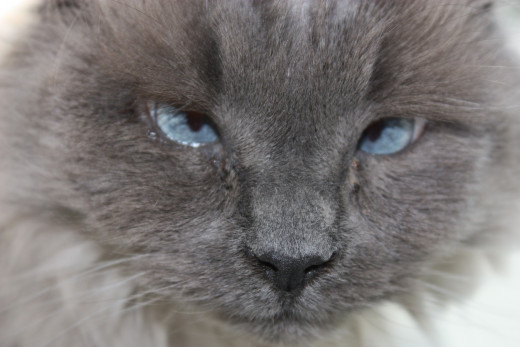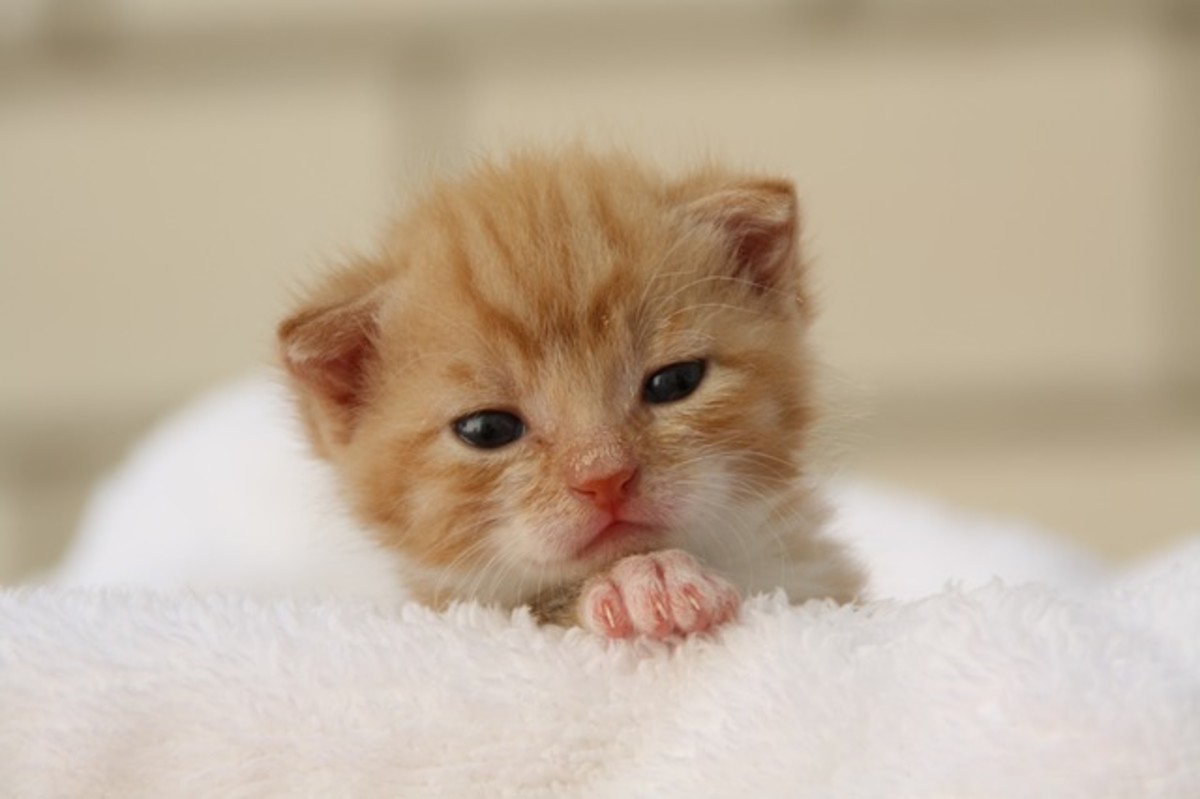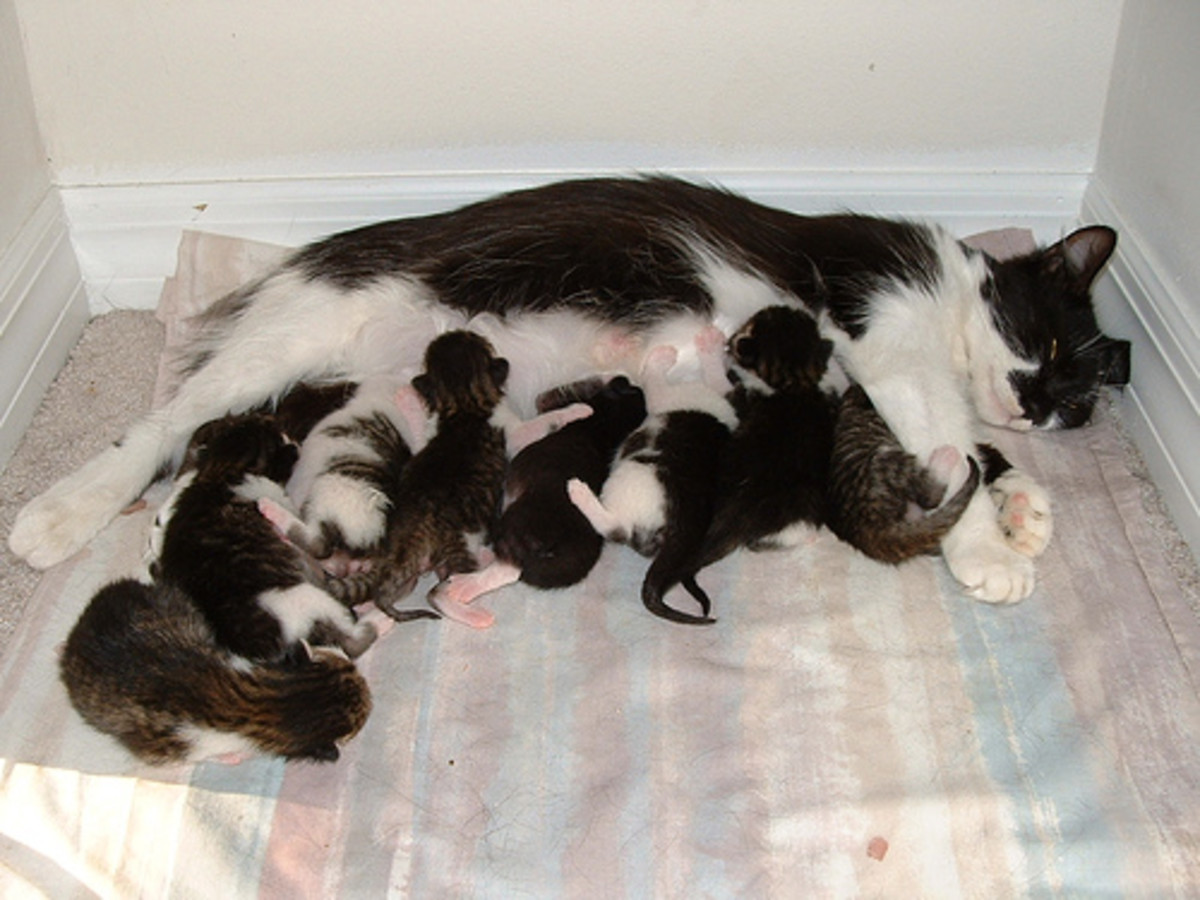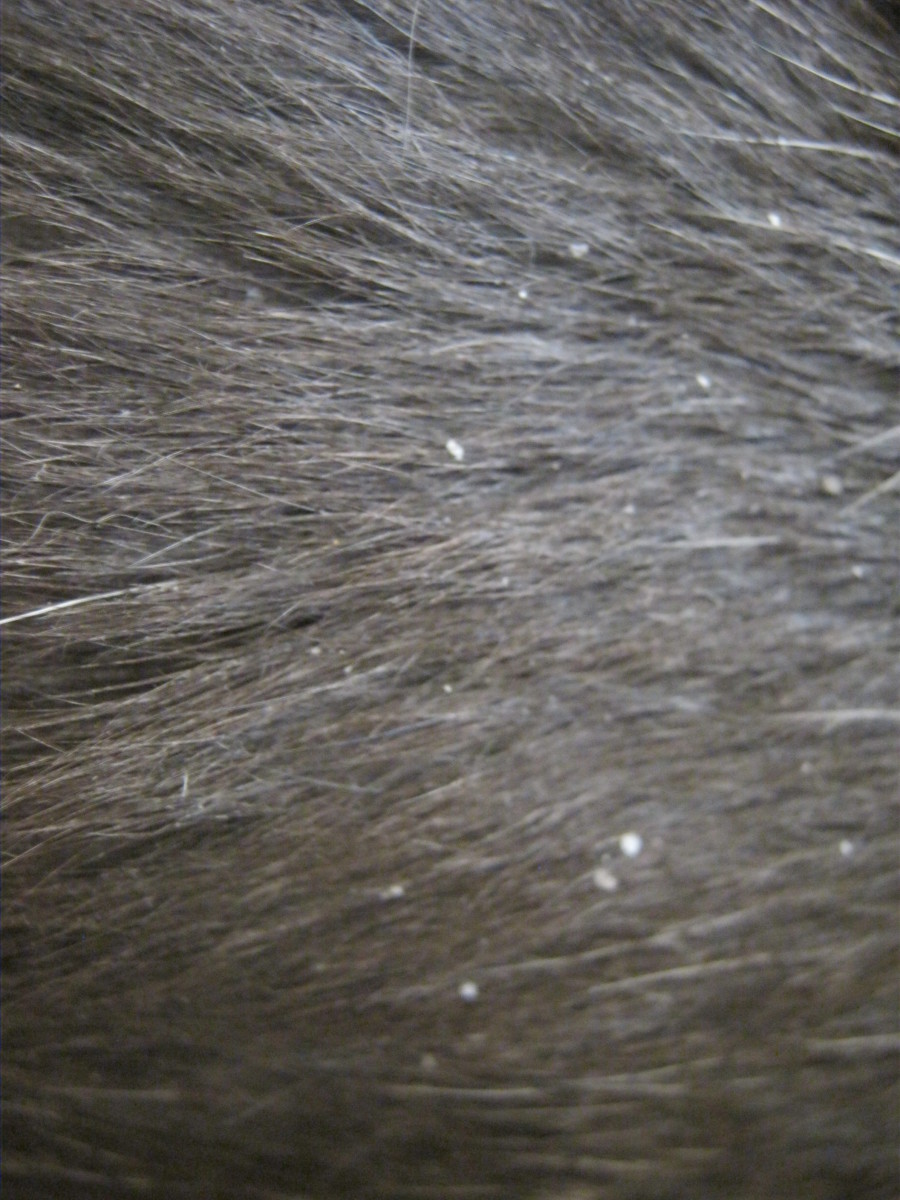- HubPages»
- Pets and Animals»
- Cats & Cat Breeds»
- Cat Health
Chemotherapy For Cats: Our Experience
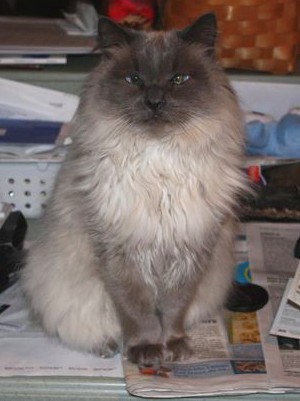
Cancer. Whether it is a human or an animal loved one, the word sends a chill through you. Within a span of three years it is a word our vet would use as a diagnosis for three of our cats. The first two times it would be intestinal cancer, the third time bone cancer. The two cats with intestinal cancer were not treated other than for pain, and both passed within two months of their diagnosis, but the one with bone cancer was treated first by surgery, then by chemotherapy, and he lived almost a year past the date of the discovery of his cancer.
I am not an expert in chemotherapy or chemotherapy drugs, so I have no advice to offer on which drugs are best, or which have particular side effects. All I can offer is my experience with what chemotherapy did for our cat Chewbakha. What follows is strictly my opinion: You may have a different experience. Nothing in this hub should be taken as medical advice. Rather, by sharing my experience with a cat that fought cancer with the help of chemotherapy my hope is that anyone else in a similar circumstance will have some information for a frank discussion with your veterinarian.
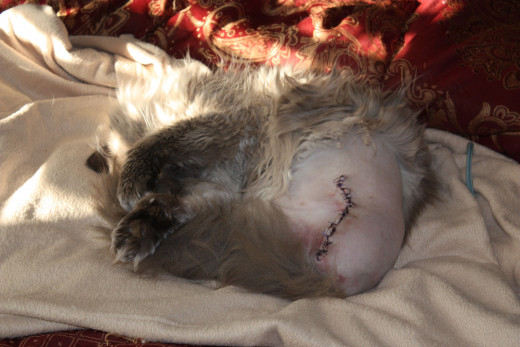
Amputation and Aftermath
It was early in 2011 when our vet gave us the news about Chewbakha. He had bone cancer which had fractured the head of his left femur. Amputation was the only course of action, so on Valentine's Day 2011 Chewbakha's left hind leg was removed. Everything I had read was confirmed by the vet: amputation was considered a stand alone treatment, and no follow up therapy such as chemotherapy was recommended. His prognosis was also confirmed by what I had read: Chewbakha had only a year to 18 months to live.
It was a short three months after the surgery that Chewbakha's appetite began to decline, and we scheduled a visit to a veterinary internal medicine specialist. The night before his appointment with the specialist we noticed something we hadn't seen before; there was a small dense mass at the amputation site.
Our visit to the specialist was less than satisfying to us. He did a fine needle aspirant of the mass on Chewbakha's hip and confirmed that it was soft tissue carcinoma. We asked him about possible treatments and he began to talk thousands of dollars and consults with surgeons and oncologists. We asked him about chemotherapy but he wouldn't even consider that without a range of tests that he said would cost at least $2000. We took Chewbakha home and prepared ourselves for his passing. His appetite was spotty at best, he had lost weight, and we were sure that he would be gone within the month. This was June 2011.
At this point Chewbakha was not eating very well and we were feeding him soft food with an eyedropper. He was nowhere near ready to die, but if he didn't eat there wasn't going to be much we could do for him, so we took him to our vet to see what our options were. She gave him a drug called mirtazapine to stimulate his appetite, which helped, and his weight loss slowed and soon stopped. After a week or so of improved appetite we decided we needed to get some more information on treatment options.
Chemotherapy and Side Effects
We took Chewbakha to another nearby veterinary specialty center, where he was seen by the oncologist, who diagnosed him as having a soft tissue sarcoma on his left hip. She told us what our treatment options would be, which were very limited: 1) give him meds to keep his appetite up as long as possible, along with pain meds to make him comfortable until it was time to euthanize him, 2) palliative radiation therapy, which she told us would ease some of his pain and perhaps shrink the tumor some but which wouldn't cure him, or 3) chemotherapy with one of several different drugs. This also would not cure him, she said. She told us that the chemo would slow the tumor growth, and possibly shrink it a bit, but she gave us this prognosis; a 50% chance that the chemo would do nothing at all, about 30% that it would help a bit, and about 20% that it would make him feel worse. We took him home to discuss our options and decided to give the chemotherapy a try.
We took Chewbakha back the following week where he was given his first dose of Leukeran, which we later learned was the same drug that a friend of ours had received to treat her breast cancer. This drug is administered IV so it cannot be given at home. Chemotherapy drugs are also generally extremely toxic, so some people may not want to administer even the ones that come in pill form, and these drugs should not be handled at all by anyone who is pregnant or in poor health. Leukeran is not a terribly expensive drug; I believe the charge for the medication itself was around $30 a treatment, but because of the precautions involved in the administration and the blood tests that were required at each visit, the total cost for each treatment was around $400. Chewbakha received a series of four treatments, three weeks apart from each other.
Being someone who likes to be as completely informed as possible regarding anything I am involved in, I had already done a fair amount of reading about cats and chemotherapy. One of the reasons we decided to give it a try was because I had read that cats tolerate chemotherapy very well. This was the case with Chewbakha. Along with each treatment he was given an injected anti-nausea medication, along with pills for us to give him at home. After the first treatment he did not require any of the pills at all. As the chemo drug began to build up in his system he required one occasionally, but overall he tolerated it very well.
Cats experience few if any of the side effects that humans experience in the realm of hair loss. Some cats will apparently lose their whiskers, but this did not happen to Chewbakha. In fact, after a day or sometimes two following each treatment where he would obviously not be feeling well and would sleep more than usual he was his usual self.
After four treatments with Leukeran the oncologist recommended that we switch to an oral chemotherapy drug, due to the fact that the tumor, which had initially shrunk in size in response to the chemo, was once again growing. The drug she prescribed, called Cytoxan, had to be given in pill form every other day. Chewbakha did not like taking pills, so this was a challenge. But again, he tolerated the medication with few ill effects.
Sadly, Chewbakha was only on the oral medication for a few weeks. His tumor, which appeared to be stable in size externally, was growing very rapidly internally, and the Cytoxan was doing little to slow it down. On Christmas night 2011 we noticed that he was having trouble going to the bathroom. We took him to our regular vet the next day, where she noticed that his anus had been displaced by the growth of the tumor, and recommended that we get him back to the oncologist as soon as possible. Because of the holiday schedule at the specialty center this proved difficult, and it was several days before he was seen. By that time the tumor had pushed on his bowels to the extent that he was no longer capable of passing firm stool. Our vet had given us a stool softener to try to help him until we could keep our scheduled appointment with a radiation oncologist at the University of Pennsylvania. Once again the holiday schedule worked against us, and by the time I got him to the Ryan Veterinary Hospital at the University of Pennsylvania on January 9, 2012 there was little more that could be done for him. Chewbakha was euthanized on January 12, 2012. He was one of the most courageous animals I have ever known.
Factors To Consider
Chewbakha was our third experience with feline cancer in the space of four years. Two other cats that had intestinal cancer were not diagnosed until chemotherapy was no longer an option for them. That is the first thing that you and your vet will have to consider: have you caught the cancer in time for chemo to be effective?
The second consideration is the age of the pet. Our Siamese that developed intestinal cancer was 15 years old, and so we came to a mutual decision with our vet that our best course was to make her comfortable until her time came and forego any treatment other than pain management. Chewbakha was not quite 10 when his leg was amputated, and because we caught the cancer early he was still young enough that treatment with chemo was a reasonable option.
Unfortunately for many people the main element in the decision about whether to pursue a chemotherapy treatment course is the cost. Excluding the cost of the amputation and related vet visits, the total cost of Chewbkha's chemotherapy, including all bloodwork and other related expenses, was in the neighborhood of $2500. We went into this knowing that it was not a cure and that his long term prognosis was a life expectancy of 12-18 months following the amputation. Since we were in the fortunate position of being able to afford the treatment it was worth the cost to us, because it gave us six more months with a truly unique and special animal. If we had decided to not do the treatment Chewbakha would have been gone by the end of last summer.
Before I close I just want to mention pet insurance. This has become the latest rage in recent years. I have heard both positive and negative things about it. The biggest negative I have heard is that if you don't take it out when your pet is very young some companies will try to deny everything as a "pre-existing condition." The positive about it is that it can help make decisions about whether to pursue expensive treatments such as chemo easier to make if you are on a tight budget. The animals we currently have are all older, and we have had them since before pet insurance became popular, so I have no experience with it. My best advice is to shop around just like you would if you were searching for a medical plan for yourself.
I hope this has been of some help if you are facing a decision about cancer treatment for your cat. While ours is just one experience, from everything I have read it is a typical experience with chemotherapy. I wonder sometimes what the outcome would have been if we had started chemo with Chewbakha as soon as possible after the cancer was diagnosed, but there's no need to question decisions made when you reach a point where you can't change the outcome. This much I know for sure: chemotherapy produced few ill effects in Chewbakha, and it enabled us to enjoy his company, and he ours, for almost six months past the time he would have otherwise been euthanized. So from our family's perspective it was worth every penny.
